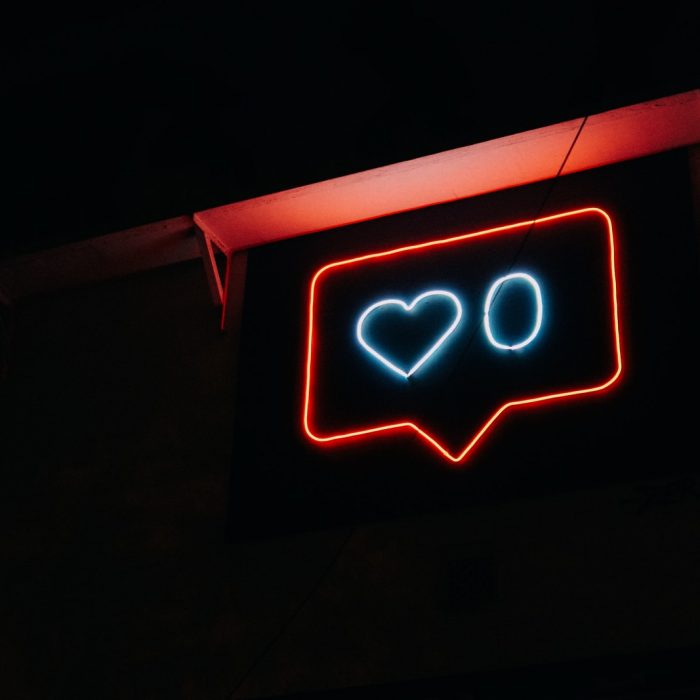
Blog Posts
Thoughts on life, writing, art, and health.

How to Do Anything When You Don’t Feel Like It
Everyone has been in that place where something needs to be done, but they just don’t want to do it. We come up with excuses, we whine to our peers, we say, “I need to do it, but I don’t wanna.”
It’s taken me almost 5 years to master how to do anything without feeling like doing it. Many people would call this “sucking it up” and just doing X or Y. But sometimes I wonder if that’s a privilege for non-neurodivergent people. Is this what people call “laziness” and respond to with a lack of compassion?
I have PTSD and bipolar disorder, so… I’m not exactly a run-of-the-mill pal who can just do things. I know I’m at a disadvantage. I know I need to accommodate myself. For many years, since my mental illness started to shape—my symptoms began in 2006—I’ve felt the stigma of not being good enough for even the most basic of self-preservation. Eating, hygiene, and hydration are the necessities of life.
And sometimes I don’t feel like doing any of those.
…Let alone all the tasks required for my creative drive and work responsibilities.
When I don’t feel like doing something, there’s something missing: interest.
There is a deep apathy here.
It’s not caring enough at that given moment to do something that I truly want done. It’s a thick blanket on my dreams and goals, and all the little steps it takes to complete them. Apathy coats my limbs with a slug that seeks to weigh me down to the point where I die from starvation or dehydration.
Apathy and Creativity
I don’t have to feel like doing something in order to do it—even if it’s a creative endeavour. The Muse is a philosophical idea. I don’t need to rely on this personification of inspiration to produce anything. Sure, it may not feel as nice as it could, but that’s the point: I don’t have to feel nice about it.
I don’t have to feel anything.
I’ve lived most of my life believing my actions and my emotions need to be married while doing something creative. Painting, drawing, poetry, writing, singing… These all sit within the arts (and there are others, which I’m not skilled at). And the arts need emotion, right?
Wrong.
A career (or intended career) in the arts has become so laced with an emotional investment that people think there needs to be emotion in the artist in order to produce emotion in the viewer.
But that’s not true.
In my experience, you just need to be saying something. That’s it. You just need to be saying something, whether it’s the truth or a lie, and some reaction will form in the reader or viewer or listener. You, as the creator, don’t need to do anything else but make a statement.
If you aren’t writing confessional poetry, then you don’t need to feel anything in order to write it.
You do not need to sit in a place where you want to do what you’ve decided to do. This doesn’t remain isolated to creative acts. It can be anything, whether it’s having a shower, going for groceries, or doing a school assignment. Why do you have to “feel like it” to do it? Can you imagine if you lived every action of your life invested in the desire to do that action? You would be exhausted after half a day.
Motivation Exists Outside of Passion
I have taken years to master the concept of being motivated without being passionate. Hell, it’s even gotten to the point where I don’t have to care in order to be motivated to do something. There are countless things I respond to with a whine, a protest of, “I really don’t want to do it.” But I do it anyway.
Why don’t I want to do it? Recently, I’ve applied to and interviewed for jobs. There have been a few times where I’ve considered emailing the hiring manager to withdraw my application or cancel (not postpone) an interview. Here’s a timeline of how my thoughts go:
- I really don’t want to do it.
- I’m scared.
- What if I make a fool of myself?
- I’m not very qualified for this position anyway.
- Even if I get the job, it’ll be hard to adjust to the commute/learning curve/co-workers/hours.
- I’ll be tired.
- I have other things I can do.
- The newness of it scares me.
- I’m not good enough.
- I’m not worth their time.
- I’m not worth it.
- I’m not worth it.
- I’m not worth it.
See, it isn’t really about if I feel anything about the activity or the appointment. It’s how I feel about myself.
“I Don’t Feel Like It” Is About the Self, Not the Work
Maybe this is what people mean when they encourage us to keep the end goal in sight. Perhaps it isn’t supposed to ignite your desires. What if it’s just a simple reminder of the one desire that started it all: to have it accomplished.
Nobody asks that we feel passion when we do chores, self-maintenance, or the drudgery of life. It would be nicer if these things were less boring, or were more engaging, or sucked less overall. They aren’t. But we can do them anyway.
The point is that I’m not taking into consideration whether I feel like doing it.
I may not feel like sitting and writing a blog post—literally how I feel while writing and editing this post—but I do it anyway.
I may not feel like flossing and brushing my teeth, tying up my hair, and washing my face before bed. But I still do it.
It’s very rarely that I get excited to take a shower, go to sleep, or feed myself. I do it all.
Because it doesn’t matter whether I feel like it. Because what matters is that, from the depths of my being, I want it done. No amount of apathy will get in the way of that. My mental illness already has such a hold on me, and this is such a sneaky way to let it win.
I want the end product. That’s what matters. It doesn’t matter how I feel going into the start, because I don’t care about how I start or when I start. I only care when I have something at the end. Even a shitty first draft.
My biggest piece of advice for anyone is the motto I’ve been telling myself: You don’t have to feel like doing something in order to do it.
Because of my mood disorder and troubles regulating my emotions (thanks, PTSD), I often do not feel anything. How can I do something, whether it’s creation or housekeeping or hygiene, if I feel numb? If the abstract location for my emotions has turned into a void? If I let the black hole of mental illness continue to dictate what I can, can’t, will, and won’t do?
I will not let the whim of indifference control me when it is kin to my depression.
My ability to complete tasks does not rely on my emotions in that moment.
But When Do I Rest?
Sometimes, I really, really, really do not feel like doing anything. It doesn’t come from an avoidance or a fear. It comes from a separate desire for rest and rejuvenation.
I’ll have another blog post on my experiences learning how to successfully rest, without guilt, but check out these tips to avoid burnout and Tim Urban’s (quite humorous) Ted Talk on procrastination.



Comments
No Comments